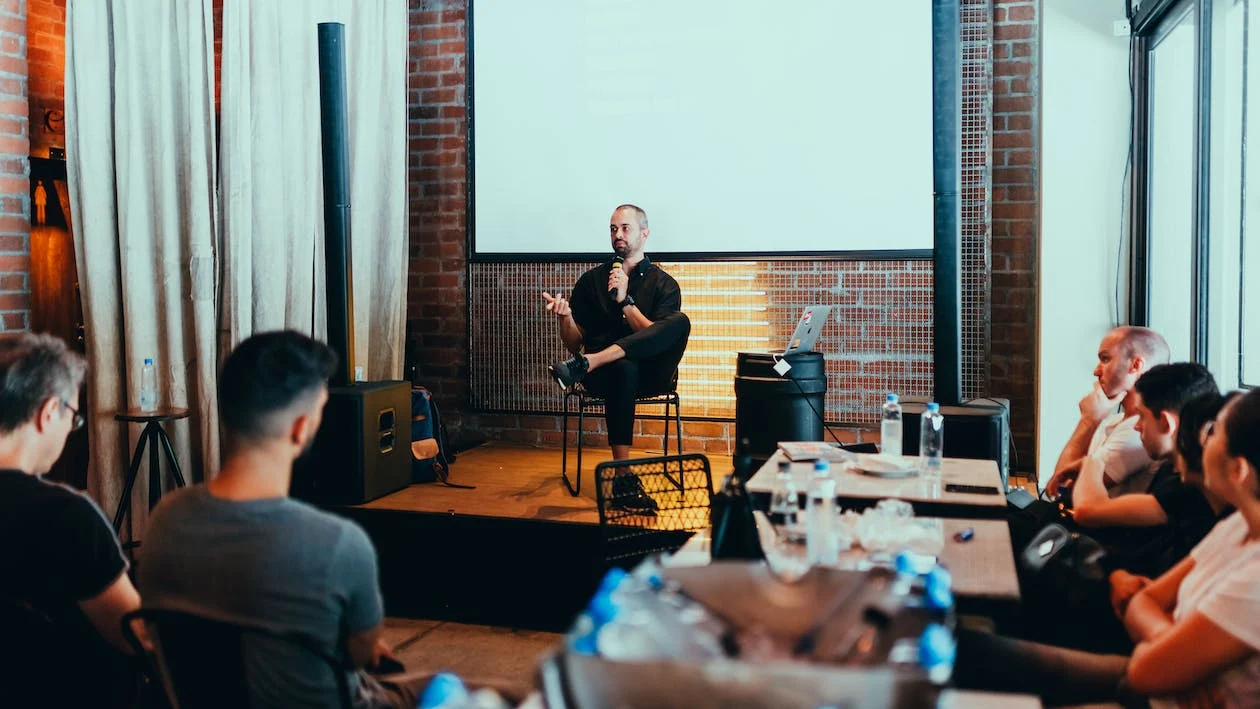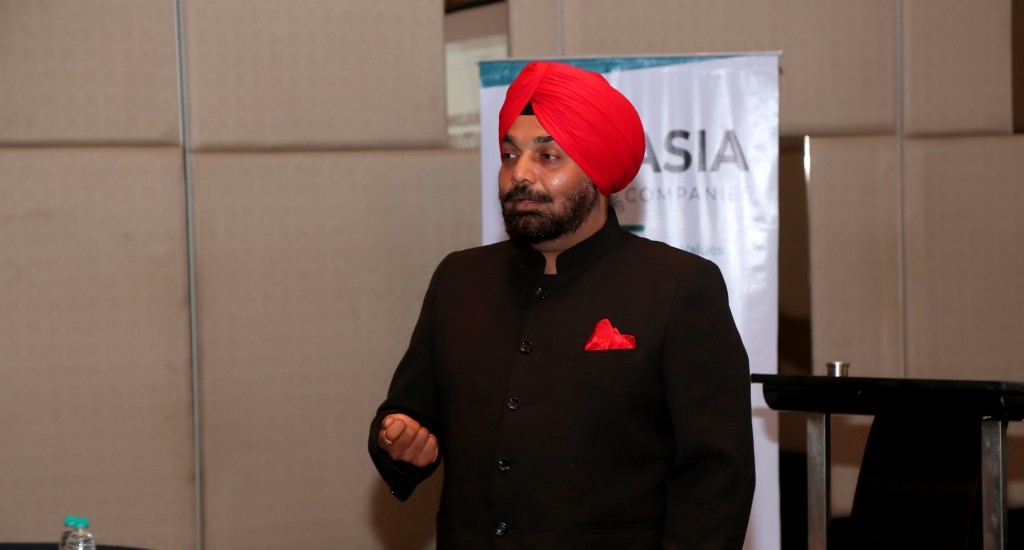As a conference speaker, your role is to inspire, educate, and engage your audience. Being chosen as a conference speaker is an opportunity to share your expertise, make an impact, and establish your credibility in your field. However, it’s essential to recognize that being a successful conference speaker goes beyond delivering a compelling speech. Event organizers play a critical role in selecting and evaluating speakers, and they have valuable insights into the common mistakes that speakers make. In this blog, we will explore some of the most common conference speaker mistakes to avoid, drawing lessons from event organizers. If you want to enhance your effectiveness as a conference speaker, keep reading to learn from these valuable lessons.
Lack of Preparation
One of the most significant mistakes that conference speakers make is failing to adequately prepare for their presentations. Insufficient preparation can lead to disorganized or incoherent speeches, missed opportunities to connect with the audience, and a lack of confidence on stage. Event organizers emphasize the importance of thoroughly researching the event, understanding the target audience, and tailoring the content to meet their needs. Preparation includes creating a well-structured outline, rehearsing the speech multiple times, and incorporating engaging visuals or multimedia elements. By investing time in preparation, you can deliver a polished and impactful presentation that resonates with your audience.
Ignoring Time Constraints
Respecting time constraints is crucial for maintaining the schedule and flow of an event. Event organizers often stress the importance of speakers adhering to their allocated time slots. Going over time can disrupt the agenda, inconvenience other speakers, and create frustration among attendees. To avoid this mistake, practice your speech within the given time frame and consider timing cues or reminders during your presentation. By being mindful of the schedule and keeping your presentation concise, you demonstrate professionalism and respect for the event organizers and attendees.
Lack of Audience Engagement
Engaging the audience is a vital aspect of successful conference speaking. Event organizers highlight the importance of creating an interactive and participatory experience for attendees. One common mistake speakers make is delivering a one-sided monologue without actively involving the audience. To avoid this, incorporate interactive elements such as polls, Q&A sessions, or group activities into your presentation. Encourage audience participation and create opportunities for them to share their insights or ask questions. By fostering engagement, you create a more dynamic and memorable experience for your audience.
Failure to Adapt to the Audience
Every audience is unique, and tailoring your speech to their needs and interests is crucial for effective communication. Event organizers stress the importance of speakers understanding their audience demographics, industry-specific knowledge, and preferences. Avoid the mistake of delivering a generic speech that does not resonate with the audience. Instead, customize your content, language, and examples to make them relevant and relatable. Show that you understand their challenges and provide practical insights and solutions. Adapting to the audience enhances their connection with you and increases the value they derive from your presentation.
Lack of Relevance and Value
Delivering content that is not relevant or valuable to the audience is a common mistake made by conference speakers. Event organizers prioritize selecting speakers who can provide actionable insights, practical tips, and industry-specific knowledge. It’s crucial to avoid delivering a self-promotional or sales-focused pitch that lacks substance. Instead, focus on delivering valuable information, addressing key industry trends, and providing tangible takeaways for the audience. By delivering content that is relevant, valuable, and applicable to their professional lives, you establish yourself as an expert and increase your credibility as a speaker.
Poor Use of Visual Aids
Visual aids, such as slides or multimedia elements, can enhance the impact of your presentation. However, poor use of visual aids is a common mistake that can hinder your effectiveness as a conference speaker. Event organizers emphasize the importance of creating visually appealing and impactful slides that complement your message rather than distracting from it. Avoid overcrowding slides with excessive text or using low-quality images. Instead, use clear and concise bullet points, high-resolution visuals, and impactful graphics to enhance your key points. Remember, visual aids should support and reinforce your message, not overshadow it.
Lack of Authenticity
Audiences appreciate speakers who are authentic and genuine. Event organizers emphasize the importance of being yourself and showing your true personality on stage. Trying to imitate someone else or adopting a persona that doesn’t align with your true self can come across as inauthentic and diminish your connection with the audience. Embrace your unique style, share personal stories and experiences, and let your passion and enthusiasm shine through. Your authenticity will resonate with the audience and create a stronger bond, making your message more impactful.
Neglecting Post-Presentation Engagement
The mistake of neglecting post-presentation engagement is often overlooked by conference speakers. Event organizers highlight the importance of building relationships and connecting with attendees beyond the stage. Engage with the audience after your presentation by participating in networking sessions, answering questions, or offering resources or further support. Provide your contact information or social media handles to encourage ongoing dialogue and connection. By nurturing these post-presentation relationships, you can strengthen your professional network and potentially generate future speaking opportunities.
Lack of Feedback Incorporation
Feedback is a valuable tool for growth and improvement as a conference speaker. Event organizers often provide feedback to speakers based on audience evaluations and their observations. However, some speakers make the mistake of not incorporating or reflecting on this feedback. Embrace constructive criticism and evaluate areas where you can enhance your speaking skills, content delivery, or audience engagement. Actively seek feedback from event organizers, attendees, or peers to gain different perspectives and identify areas for improvement. By continuously learning and evolving based on feedback, you can refine your skills and deliver more impactful presentations in the future.
Furthermore, it’s important to approach conference speaking as a continuous learning journey. As you navigate the conference speaking circuit, consider these additional tips to enhance your success:
Build Relationships with Event Organizers
Developing strong relationships with event organizers can open doors to future speaking opportunities. Be professional, reliable, and responsive in your communications. Show gratitude for the opportunity to speak and express interest in being considered for future events. Maintain a positive reputation by delivering high-quality presentations and being a pleasure to work with.
Develop a Unique Speaking Style
Differentiate yourself from other conference speakers by developing a unique speaking style that reflects your personality and expertise. Incorporate elements such as storytelling, humor, or audience interaction that align with your message and engage your audience. Find your authentic voice and use it to stand out in the conference speaking circuit.
Embrace Continuous Learning
Commit to continuous learning and professional development to stay ahead in the conference speaking industry. Attend workshops, conferences, and seminars to expand your knowledge, learn from industry experts, and stay updated on trends and best practices. Investing in your personal and professional growth will make you a more valuable and sought-after conference speaker.
Leverage Social Media
Harness the power of social media to amplify your reach and showcase your expertise as a conference speaker. Use platforms like LinkedIn, Twitter, and YouTube to share snippets of your presentations, engage with your audience, and establish yourself as a thought leader in your field. Regularly post relevant content, interact with your followers, and actively participate in conversations related to conference speaking.
Seek Testimonials and Referrals
Ask event organizers and attendees for testimonials and referrals after your speaking engagements. Positive testimonials and word-of-mouth recommendations can significantly boost your credibility and attract new speaking opportunities. Display these testimonials on your website or include them in your speaker’s kit to build trust and demonstrate the value you provide as a conference speaker.
Stay Updated on Industry Trends
The conference-speaking landscape is ever-evolving. Stay informed about emerging industry trends, technological advancements, and shifts in audience preferences. This knowledge will help you adapt your presentations, incorporate relevant topics, and deliver content that resonates with your audience. Stay curious and curious, and continuously explore new ways to enhance your conference speaking skills.
Network with Other Speakers
Network with other conference speakers to learn from their experiences, share insights, and collaborate on speaking engagements. Attend speaker events, join professional associations, and engage in online communities to connect with like-minded individuals. Building relationships with other speakers can lead to collaborations, referrals, and valuable knowledge exchange.
Practice Mindfulness and Self-Care
Taking care of yourself is crucial to maintaining a strong presence on stage. Practice mindfulness techniques such as meditation or deep breathing to calm your nerves before speaking. Prioritize self-care by getting enough rest, eating well, and exercising regularly. When you feel your best physically and mentally, you’ll be able to deliver your presentations with confidence and clarity.
Embrace Feedback and Continuous Improvement
Seek feedback from event organizers, attendees, and peers to gain valuable insights and areas for improvement. Actively listen to feedback and reflect on ways to enhance your speaking skills, stage presence, or content delivery. Embrace a growth mindset and continuously work on refining your craft to become an even more impactful conference speaker.
Develop a Signature Keynote
Consider developing a signature keynote that showcases your expertise and serves as your flagship presentation. This keynote should be your most compelling presentation, representing your unique perspective and offering valuable insights. Refine this keynote over time based on audience feedback and its impact on your speaking career.
Have Fun and Enjoy
The journey of being a conference speaker is ultimately about sharing your knowledge, inspiring others, and making a positive impact. Keep in mind to enjoy yourself and the event. Let your passion and enthusiasm shine through in your presentations, and genuinely connect with your audience. When you enjoy what you do, it becomes contagious, and your audience will be more engaged and receptive to your message.
Conclusion
Becoming a successful conference speaker requires more than delivering a compelling speech. By learning from the insights of event organizers and avoiding common mistakes, you can enhance your effectiveness on stage. Remember the importance of preparation, respecting time constraints, engaging the audience, adapting to their needs, delivering relevant and valuable content, using visual aids effectively, embracing authenticity, nurturing post-presentation connections, and incorporating feedback for continuous improvement. By avoiding these mistakes and honing your skills, you can elevate your conference speaking abilities and make a lasting impact on your audience.


